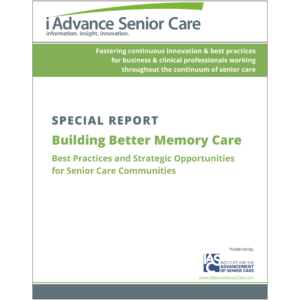Staffing, introspection can improve resident dignity: study
It is difficult for nurses and physicians to provide care to nursing home residents in a way that preserves their personal dignity when those healthcare professionals face facility-related obstacles such as staffing shortages and they do not adjust their actions to accommodate residents’ preferences rather than their own, according to a study published online by BMC Health Services Research. Policymakers, nursing home managers, nurses and doctors must collaborate to find solutions, the researchers say.
The investigators performed in-depth interviews of 13 physicians and 15 nurses, who shared their dignity-related experiences involving 30 residents who recently had been admitted to the general medical wards in four nursing homes in The Netherlands. Residents’ physical impairment and dependence on others are their two biggest obstacles to experiencing dignity, they said, and resident resilience and ability to “keep his/her individuality” are keys to resident dignity not being violated. The investigators define personal dignity as being “individualistic and tied to personal goals and social circumstances,” as opposed to basic dignity, which is to “be affected by the circumstances or actions of others.”
The nurses and doctors abstractly were able to identify behaviors that could contribute to residents’ feelings of personal dignity, the researchers say. When the healthcare professionals were asked to identify ways in which they could play a role in a particular resident’s personal dignity, however, they frequently mentioned aspects of care related to basic dignity that could apply to most residents—treating residents with respect, safeguarding their privacy and enhancing their autonomy.
To promote residents’ personal dignity, the investigators say, nurses and physicians should focus on residents’ backgrounds and preferences and not assume that residents’ values match their own. Administrators can aid them, the researchers add, by optimizing working conditions for staff, including improving employee quality and quantity, expanding the care focus beyond tasks and activities of daily living care, and reducing paperwork
See other content by this author here.
.

Lois A. Bowers was senior editor of I Advance Senior Care / Long-Term Living from 2013-2015.
Related Articles
Topics: Activities , Alzheimer's/Dementia , Clinical , Executive Leadership , Facility management , Nutrition , Rehabilitation , Staffing











